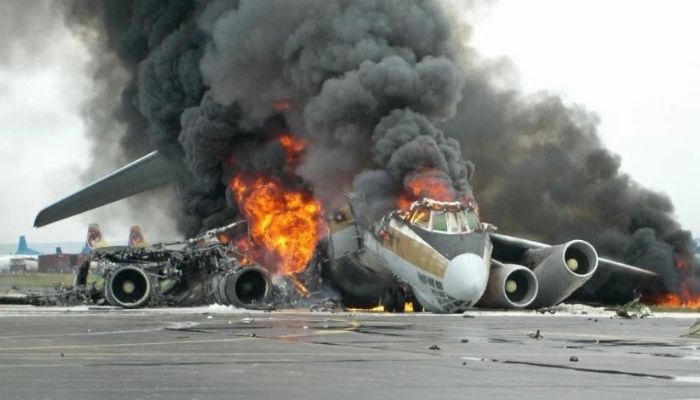China on Friday denied reports that it had been illicitly selling oil products to North Korea in violation of UN sanctions, after U.S. President Donald Trump said he was not happy that China allowed oil to reach the isolated nation.
Trump said on Twitter on Thursday that China had been “caught RED HANDED” allowing oil into North Korea and that would prevent “a friendly solution” to the crisis over Pyongyang’s development of nuclear-tipped missiles capable of hitting the U.S.
In a subsequent New York Times interview, Trump explicitly tied his administration’s trade policy with China, North Korea’s neighbour and lone major ally, to cooperation in resolving the North Korea standoff.
“I have been soft on China because the only thing more important to me than trade is war,” he said.
“If they’re helping me with North Korea, I can look at trade a little bit differently, at least for a period of time. And that’s what I’ve been doing. But when oil is going in, I‘m not happy about that.”
South Korea’s Chosun Ilbo newspaper this week quoted South Korean government sources as saying that U.S. spy satellites had detected Chinese ships transferring oil to North Korean vessels about 30 times since October.
U.S. officials have not confirmed details of this report but a U.S. State Department official said Washington had evidence of vessels from several countries, including China, engaged transhipping oil products and coal.
Chinese Foreign Ministry spokeswoman Hua Chunying told reporters she had noted recent media reports, including suggestions a Chinese vessel was suspected of transporting oil to a North Korean vessel on Oct. 19.
”In reality, the ship in question has, since August, not docked at a Chinese port and there is no record of it entering or leaving a Chinese port,“ Hua said adding that the reports ”did not accord with facts.
“China has always implemented U.N. Security Council resolutions pertaining to North Korea in their entirety and fulfils its international obligations. We never allow Chinese companies and citizens to violate the resolutions,” Hua said.
“If, through investigation, it’s confirmed there are violations of the UN Security Council resolutions, China will deal with them seriously in accordance with laws and regulations.”
South Korea said on Friday that in late November it seized a Hong Kong-flagged ship, the Lighthouse Winmore, suspected of transferring oil to North Korea. The ship’s registered manager, Lighthouse Ship Management, is in the Chinese port of Guangzhou.
A South Korean Foreign Ministry official said the ship transferred as much as 600 tons to the North Korea-flagged Sam Jong 2 on Oct. 19 in international waters between China and the Korean peninsula, on the order of its Taiwan-based charterer, Billions Bunker Group Corp.
A spokesman for Taiwan’s presidential office, Alex Huang, said the firm was not incorporated in Taiwan and China’s Foreign Ministry spokeswoman said she did not have any information about the matter.
Both ships were among 10 vessels the United States has proposed that the U.N. Security Council should blacklist for transporting banned items from North Korea, documents seen by Reuters this month showed.
China and Russia have asked for more time to consider the U.S. proposal.
The Trump administration has led a drive to step up global sanctions on North Korea and the U.N. Security Council last week unanimously imposed new sanctions in response to Pyongyang’s Nov. 29 test of an intercontinental ballistic missile (ICBM).
Those sanctions seek to further limit North Korea’s access to refined petroleum products and crude oil and Washington says the full cooperation of China, North Korea’ main trading partner, is vital if this peaceful pressure campaign is to succeed.
It has warned that all options are on the table, including military ones, if sanctions fail.
U.S. Defense Secretary Jim Mattis was asked by reporters on Friday whether the U.S. Navy might become involved in seizing vessels suspected of transferring oil to North Korea.
He said he would not speculate on future operations but added: “Obviously if a government finds that there is a ship in their port conducting trade that was forbidden under the U.N. Security Council resolution, then they have an obligation and so far we have seen nations take that obligation seriously.”
In September, the Security Council put a cap of 2 million barrels a year on refined petroleum products exports to North Korea.
The latest U.N. resolution seeks to ban nearly 90 percent of refined petroleum exports to North Korea by capping them at 500,000 barrels a year.
It also caps crude oil supplies to North Korea at 4 million barrels a year and commits the Security Council to further cuts if North Korea conducts another nuclear or intercontinental ballistic missile test.
Ship tracking data in Thomson Reuters Eikon shows that the Lighthouse Winmore has mainly been doing supply runs between China and Taiwan since August.
Prior to that, it was active between India and the United Arab Emirates. In October, when it allegedly transferred petroleum products to the North Korean ship, the Lighthouse Winmore had its tracking transponder switched off.
South Korea’s customs service concluded that the Lighthouse Winmore had loaded about 14,000 tons of Japanese refined petroleum products in South Korea on Oct. 11, reportedly bound for Taiwan, the South Korea official said.
“It’s unclear how much oil the ship had transferred to North Korea for how long and on how many occasions, but it clearly showed North Korea is engaged in evading the sanctions,” the official told Reuters.
It was not immediately possible to find contact information for the Taiwanese charter company.
The Hong Kong government said it was “liaising with the Korean parties concerned to obtain further information about the incident, and will take appropriate actions as necessary”.
Employees at the office of Lighthouse Ship Management declined to comment and said they had no knowledge of the situation. (Additional reporting by Hyonhee Shin and Josh Smith in Seoul, Venus Wu and Tyrone Siu in Hong Kong, Brenda Goh in Shanghai and Idrees Ali in Washington; Reuters/NAN)



